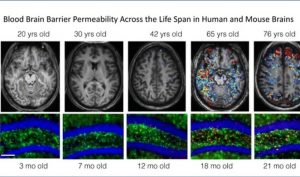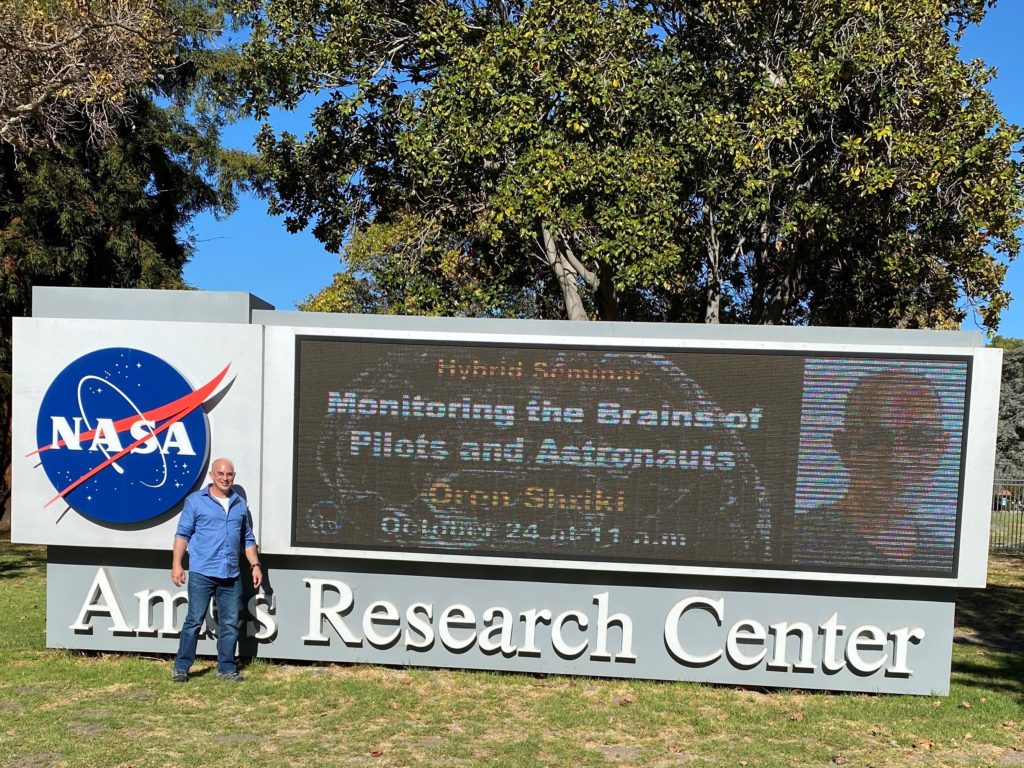
New Drug, Techniques Decrease Cognitive Decline From Aging
New Drug, Techniques Decrease Cognitive Decline From Aging
December 9, 2019
JNS — A groundbreaking clinical approach has been developed combining new diagnostic techniques to detect a leaking blood-brain barrier (BBB) with a new anti-inflammatory drug that for the first time slows or reverses age-related cognitive decline.
In two related studies published in the journal Science Translational Medicine, researchers from Ben-Gurion University of the Negev (BGU) and the University of California, Berkeley, report that when given the new drug to reduce inflammation, senile mice had fewer signs of dysfunctional brain electrical activity and were better able to learn new tasks, becoming almost cognitively adept as mice half their age.

Prof. Alon Friedman
“These findings represent real hope that we can stop, and even reverse, the deterioration that until now we considered an inevitable part of aging,” said the senior author of the study, BGU Prof. Alon Friedman, M.D., Ph.D., and his research partner, Prof. Daniela Kaufer at UC Berkeley Department of Integrative Biology.
The BBB is a semi-permeable interface that separates circulating blood from the brain. It also prevents the transfer of unwanted molecules or infectious organisms from the blood to the brain. Increasing evidence shows that breaching the integrity of this barrier causes many brain diseases and neurodegeneration as a result of aging.
The Friedman group in the BGU Brain Imaging Center developed an MRI imaging protocol—dynamic contrast-enhanced (DCE) imaging—and mathematical algorithms that quantify leakage in the BBB.
Kaufer and Friedman also showed that introducing albumin into the brain could, within a week, make the brains of young mice look like those of old mice in terms of neuronal functions and their susceptibility to seizures. These albumin-treated mice also navigated a maze as poorly as aged mice.
“When we infuse albumin into the brains of young mice, we recapitulate aging of the brain: the gene expression, the inflammatory response, resilience to induced seizures, mortality after seizures, and performance in a maze,” said Kaufer.
“And when we record their brain activity, we find these paroxysmal slow wave events (PSWEs). And all is specific to the site we infuse, so doing this is sufficient to get an aged phenotype of this very young brain,” she said.
Administering a new anti-inflammatory drug that specifically targets TGF-β signaling decreased the PSWE occurrences in BBB leakiness. The drug, a small molecule called IPW, not only helps to alleviate the effects of a leaky BBB, but seems to also heal the barrier.
“These PSWEs may explain some of the symptoms we see in Alzheimer’s disease patients; therefore, lowering the PSWE burden may help those patients,” said Dr. Dan Milikovsky who led the project in Friedman’s laboratory.
The researchers have started a company to develop IPW and other therapeutics with the goal of reducing brain inflammation, and thus permanent damage after stroke, concussion or traumatic brain injury. The drug may eventually help older adults suffering from early dementia or Alzheimer’s disease with demonstrated BBB leakage.




